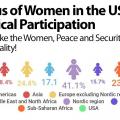Alexandra Hoffman and Judy Bonnell-Wenzel of Ann Arbor WILPF demonstrate on behalf of Flint residents. Credit: Odile Hugonot Haber
By Nancy Price, Earth Democracy Committee
World Water Day was created in 1993, one year after the Rio de Janeiro Earth Summit. Plan an action or event now and post to the UN World Water Day global map. This year’s theme is the Power of Water and Jobs – transforming people’s lives. Read more about World Water Day , ideas for actions and news events.
The UN website explains that on World Water Day people everywhere show that they care and have the power to make a difference. This year many will focus on the power that water and jobs have to transform people’s lives. Nearly all jobs are related to water and those that ensure its safe delivery. But today, millions of people who work in water are often not recognized or even protected by basic labor rights.”
Of course building large and small water projects and wells in urban and rural areas across the world can make a difference in people’s lives and lead to the realization of the human right to water deemed by the UN a prerequisite to realization of all other rights.
Yet, water privatization, unchecked water pollution from sources of all kinds, regulatory failure, corporate and political corruption, budget cuts and racial injustice can drastically impact delivery of water safe for personal and household use in both first, developing and third world countries. This is not just a matter of labor rights, but of government policy, budget priorities and political will.
On World Water Day plan to initiate or join a solidarity action in support of the human right to water in your or a nearby community where needed.
Here’s an example from the Ann Arbor Branch. As Odile Hugonot Haber reports, on several occasions from January to February she and some members went door-to-door in Flint to alert mothers that even water that was filtered should not be used by pregnant or nursing mothers and children or by anyone with cancer. Everyone should only drink bottled water.
They also demonstrated a few times in front of Michigan Governor Rick Snyder’s $2 million condo in Ann Arbor calling for his resignation and a criminal investigation.
They were joined by women activists from Flint who told them, “If you think this is not coming to your town, you are mistaken.”
Now we know from recent reports that Flint is not the only case of lead poisoning of water. Reports show lead poisoning in water is more extensive nationwide, across the country, many types of pollution have compromised or now threaten our drinking water sources. In fact, as Odile reports that Ann Arbor’s drinking water has been threatened since the 1980s by a slow-moving underground plume of the industrial solvent 1,4-dioxane used at a nearby plant and very little remediation has been accomplished.
World Water Day events in Fresno
By Jean Hays
Fresno’s Earth Democracy Group is planning a two-part celebration – with a film showing on Friday, March 18, and a Workshop on Saturday, March 19. Please join us! Mother Earth and each of her fragile inhabitants need all of us right now!!
On March 18, WILPF co-sponsors with the CineCulture film series class at California State University, Fresno, a showing of the “don’t miss” environmental thriller Racing Extinction, from the people who gave us The Cove. Racing Extinction addresses the fact that species are disappearing rapidly due to many man-made conditions. One example, as the film's narrator states: "The wildlife trade is second only to the drug market in the world; it's that lucrative."
 The next day, WILPF hosts the Enlightened Apocalypse: Paying It Forward to Save Mother Earth free workshop.
The next day, WILPF hosts the Enlightened Apocalypse: Paying It Forward to Save Mother Earth free workshop.
“Don't it always seem to go -That you don't know what you've got -‘Til it's gone"
These words from Joni Mitchell’s song, Big Yellow Taxi,” help provide the theme of our March 19 Earth Democracy workshop that will start with the concept of what the Earth would look like with no living thing left on it. We will then step back to take a look at what actions caused this total destruction of life, and then examine what we can do now to change conditions so such extinction will not happen.
Presenters will include a representative of Valley First Nations people and local experts Steve Haze, Lloyd Carter and Walt Shubin. The local examples of Tulare Lake, the San Joaquin River and the dams that have and will destroy our delicate balance of nature will be topics of discussion as well as others brought to the table by workshop participants.
We will begin the workshop with an outdoor opening ceremony by members of a local tribe who will then open the discussion on Indigenous philosophy of our relationship to Mother Earth. Next we will hear stories from the other presenters, including parts of a short film and commentary on Tulare: The Phantom Lake and then break into discussion groups with the hope of coming up with next steps to stop further destruction of our environment and restore what has been damaged. Sound like a tall order? As the Friday film narrator says: "Better to light one candle than to curse the darkness. Maybe someone else with a candle will find you and, together, you will find others."
Come to see the Friday Racing Extinction film, then attend our workshop the next day and light your candle, along with other workshop participants. Imagine the Earth coming back from the brink, a reverse apocalypse, a vibrant, lush, green home to all our precious species of plants and animals, and humans included. In the days before the film and workshop, keep your eyes open for night projections of photos of endangered species on buildings near you!
If you have questions call Jean Hays at 559-313-7674.

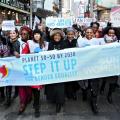
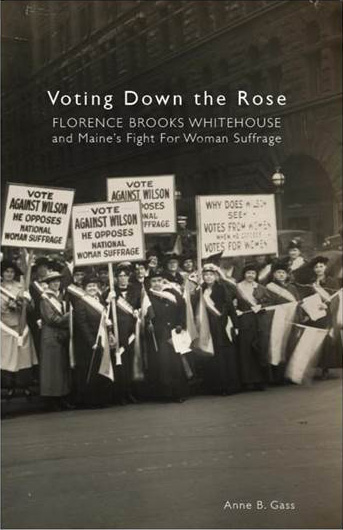 By Christine DeTroy, Maine WILPF
By Christine DeTroy, Maine WILPF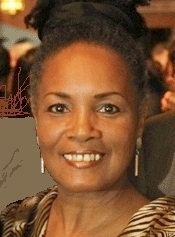 Attorney Sharon Kyle, publisher of the LA Progressive. laprogressive.com will address the International Women’s Day luncheon of WILPF Los Angeles on March 12. She serves on the board of the Black Commentator and on the board of the ACLU of Southern California.
Attorney Sharon Kyle, publisher of the LA Progressive. laprogressive.com will address the International Women’s Day luncheon of WILPF Los Angeles on March 12. She serves on the board of the Black Commentator and on the board of the ACLU of Southern California.
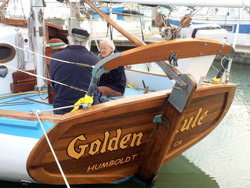
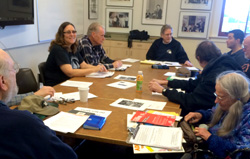


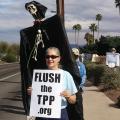
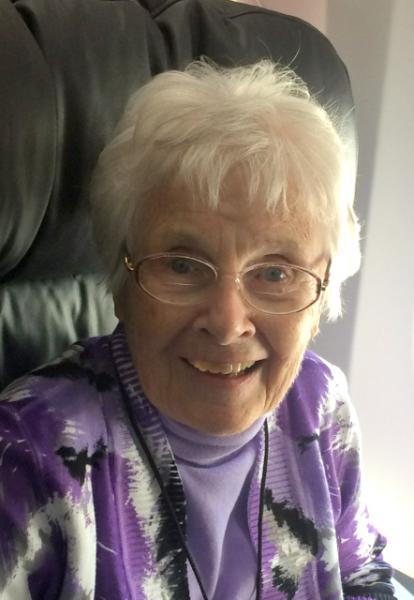 Longtime WILPF peace activist Ethel M. Jensen died on November 5, 2015. Ethel's life included an undergraduate education at Ohio State University, wartime marriage to Joe in 1944, birthing and raising four children, and redefining herself in mid-life starting with an MA in Education from Villanova University in 1973. But the predominant themes in her life were her commitment to peace, civil liberties, and to the rights and dignity of women. In fact, she would argue that the ideals of peace and civil liberties are inextricably bound to those of feminism.
Longtime WILPF peace activist Ethel M. Jensen died on November 5, 2015. Ethel's life included an undergraduate education at Ohio State University, wartime marriage to Joe in 1944, birthing and raising four children, and redefining herself in mid-life starting with an MA in Education from Villanova University in 1973. But the predominant themes in her life were her commitment to peace, civil liberties, and to the rights and dignity of women. In fact, she would argue that the ideals of peace and civil liberties are inextricably bound to those of feminism. Georgia Pinkel served on the board of WILPF US as program chair and wrote the Branches column for Peace & Freedom magazine for many years. She attended the 1995 Beijing International Women’s Conference. She sang with the Raging Grannies and enjoyed participating in the Grannies’ Unconventions.
Georgia Pinkel served on the board of WILPF US as program chair and wrote the Branches column for Peace & Freedom magazine for many years. She attended the 1995 Beijing International Women’s Conference. She sang with the Raging Grannies and enjoyed participating in the Grannies’ Unconventions.